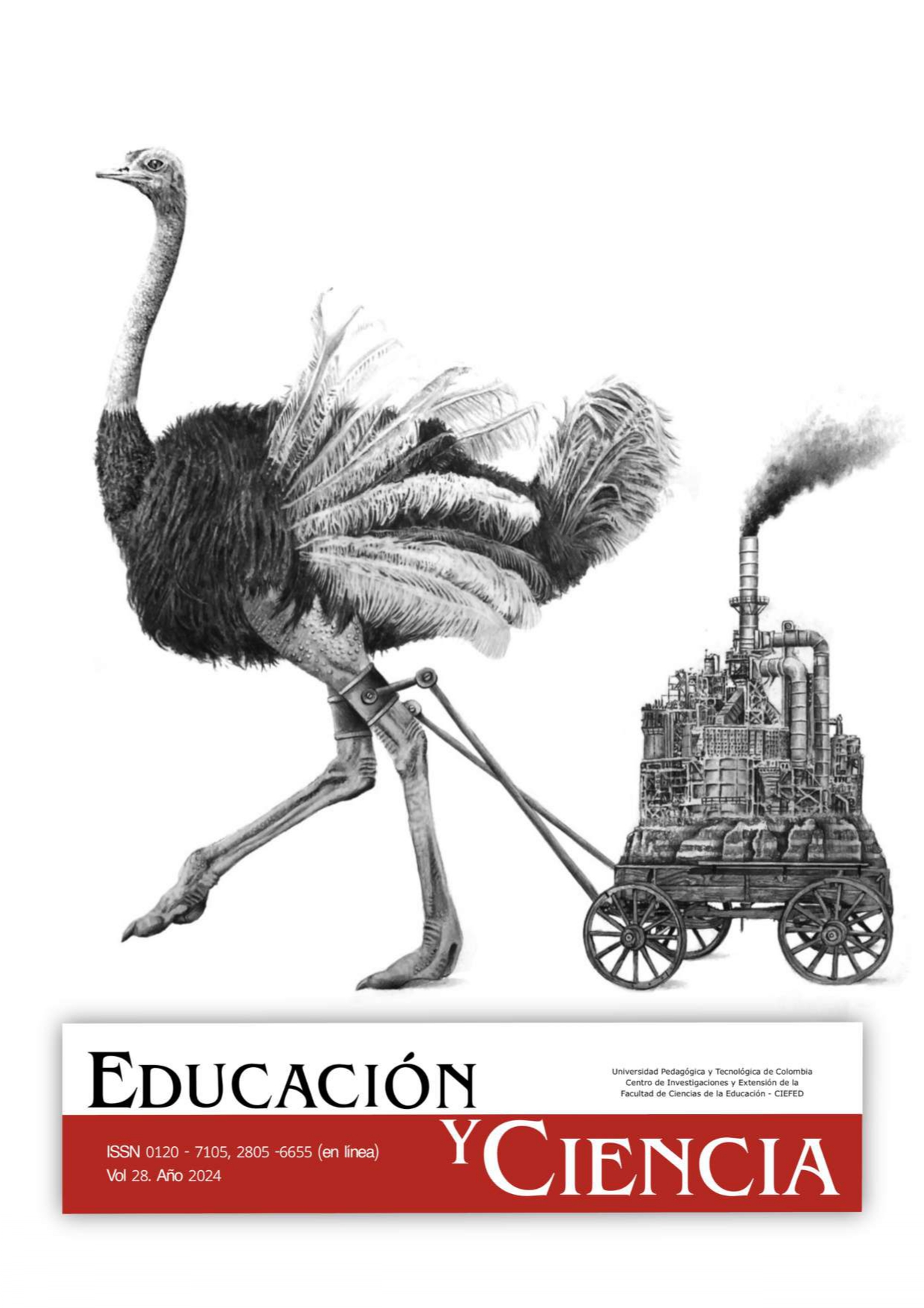About the Insurrection of Knowledge and Learning

Abstract
In the search for new epistemological and educational orientations for the shaping and construction of knowledge that subsequently constitute knowledge and learning in accordance with the realities of the developing century, a crisis of an argumentative and reflective type is proposed, which allows knowledge to be understood without being limited to a restricted vision of academic disciplines, in such a way that it is essential to generate conceptual reflections that build bridges, cross borders and promote interweavings that enhance the educational capacity of human beings and their learning process. To this extent, a process of insurrection of knowledge and learning that is adapted to the interconnected world in which we live is developed.
The purposes for acquiring knowledge are still framed in educational systems, which under the epistemological and educational authority of modernity, fragment knowledge and its acquisition into compartmentalised disciplines. This leads to a double obedience: on the one hand, it separates knowledge and prevents its interaction with other knowledge from an interdisciplinary and transdisciplinary perspective; on the other hand, it paralyses the subjectivities that educate and are educated under structures of thought that lack interaction with other knowledge, preventing new ways of learning.
In this way, methodologically speaking the path forward, is an argumentative dialogue by means of different authors, who constitute conceptual reflections in the light of new educational horizons that situate the insurrection of awareness and learning, allowing new ways of understanding and acquiring knowledge.
Keywords
Education in Complexity, knowledge and learning, insurrection.
References
- Bauman, Z. (2012). Sobre la educación en un mundo líquido. Barcelona. Paidós.
- Bunge, M. (1995), Sistemas sociales y Filosofía. Editorial Sudamericana, Buenos Aires.
- Bruner, J. (2016). La importancia de la educación. Buenos aires. Paidós.
- Fajardo, J. (2021). La Comunagogía ¿Una alternativa en la educación actual? Bogotá. Ediciones alternativas.
- Fajardo, J. (2017). La Comunagogía: una manera de dinamizar procesos educativos alternativos. Argumentos, 30(83), 197-218.
- Freire, P. (1972). Pedagogía del oprimido. Buenos Aires. Siglo XXI Editores.
- Freire, P. (2008). Pedagogía de la autonomía. Sao Paulo. Paz e Terra S.A.
- Luengo, E. (2018). Las vertientes de la complejidad: pensamiento sistémico, ciencias de la complejidad, pensamiento complejo, paradigma ecológico y enfoques holistas. Guadalajara. ITESO.
- Maldonado, C. (2009). La complejidad es un problema, no una cosmovisión. Revista De Investigaciones. Recuperado de https://revistas.ucm.edu.co/index.php/revista/article/view/173.
- Maldonado, Carlos Eduardo. (2014). ¿Qué es eso de pedagogía y educación en complejidad? Intersticios sociales, (7), 1-23. Recuperado de http://www.scielo.org.mx/scielo.php?script=sci_arttext&pid=S2007-49642014000100002&lng=es&tlng=es.
- Maldonado, C. (2016). Complejidad de las ciencias sociales. Y de otras ciencias y disciplinas. Bogotá, Colombia. Ediciones desde abajo.
- Maldonado, C. (2017). Educación compleja: Indisciplinar la sociedad. En Revista Educación y Humanismo, 19(33), 234-252. http://dx.doi.org/10.17081/eduhum.19.33.2642.
- Maldonado, C. (2021). Ciencias de la complejidad son ciencias de la vida. Trepen Ediciones. Chile.
- Mejía, Marco Raúl. (2020). Educación(es), escuela(s), y pedagogía(s) en la cuarta revolución industrial desde Nuestra América. Bogotá, Colombia. Ediciones desde abajo.
- Mora, D. (2012). Diálogo y transferencia dialéctica de saberes/conocimientos. Revista Integra Educativa, 5(3), 31-75. Recuperado de http://www.scielo.org.bo/scielo.php?script=sci_arttext&pid=S1997-40432012000300003&lng=es&tlng=es.
- Morin, E. (2005). El paradigma perdido. Barcelona. Editorial Kairós S.A.
- Morin, E. (2006). El Conocimiento del conocimiento. España, Ediciones Cátedra.
- Morin, E. (2008). La mente bien ordenada. Ciudad de México. Siglo veintiuno editores.
- Morin, E. Delgado, C. (2017). Reinventar la educación. Bogotá. Ediciones desde abajo.
- Rodríguez, L. (2018) La emergencia de los enfoques de la complejidad en América Latina. Buenos Aires. Comunidad Editora Latinoamericana.
- Wallerstein, I. (2005). Las incertidumbres del saber. Barcelona. Gedisa editorial.
- Zuleta, M. (2007). ¿Uno solo o varios mundos? Diferencia, subjetividad y conocimientos en las ciencias sociales contemporáneas. Bogotá. Siglo del Hombre Editores.